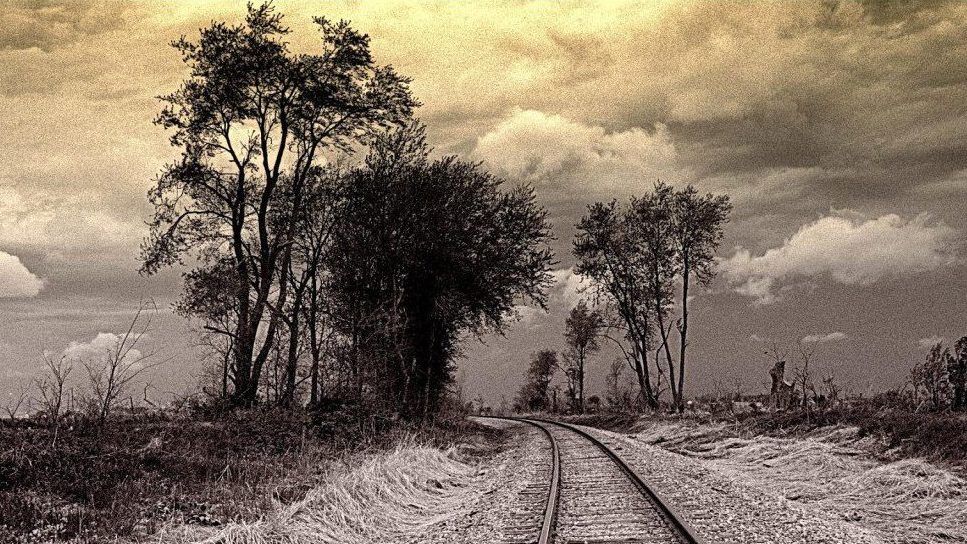Vodka plays a central role in the medicinal regimen of the two ne’er-do-wells who visit the chicken house semi-weekly, although not in mine. I enjoyed my first tall, cold glass of legally purchased draft beer in March 1968 for a quarter. I have been able to get by quite nicely on that for the duration, in admittedly varying dosages. Behind the bar I keep twin 750 milliliter Absolut bottles for them, bottles quite beautiful in their spareness and simplicity and left here by someone after a social occasion. I maintain those bottles for the ne’er-do-wells by periodically purchasing a gallon of the cheapest brand of vodka I can find at the grocery in town and refilling the twin Absolut bottles with it. I would long ago have been caught out in this if I were ever going to be. In fact, I am in the market now for an empty Stolichnaya bottle so that I can offer them a brand choice.
One can hardly turn around recently without tripping over an essay or an extended review of some book wherein the authors attempt to place the year 1968 in historical context and make sense of it fifty years after the fact. That is an absurdly futile endeavor. I say that we simply declare that year to have been merely a collective nightmare, write it off, and forget about it. When reading many of those offerings in preparation for making that recommendation, however, I noticed that when listing the horrific events that followed one after another in 1968, the authors often omit one, that being the Tet Offensive in South Vietnam in January. Whoever (or whatever) it is who scripts nightmares displayed his compositional brilliance in that art by putting the Tet Offensive first, setting the tone as it did for all that followed.
An acquaintance, who somehow discerned my weird reverence for paper maps as a result of my stint in the Army Infantry back then, gave me the February 1967 National Geographic map of Vietnam, Cambodia, Laos, and Thailand that is now on display under the plexiglass atop the bar. One cannot disrespect a gift—at least until a respectable period of time has passed and one can quietly dispose of it.
The other Steve noticed the map right away upon the ne’er-do-wells’ first visit here after its installation. He immediately sat down on one of the donated stools and began a silent study, an obvious case of paper map reverence. I chatted with Rick. Rick seemed oblivious to the map. Finally, I said to Steve, “Show me.” He then meticulously traced routes out of the Mekong Delta area into the wilds of Cambodia south of Phnom Penh and back. But Cambodia was neutral. We never officially had ground troops in Cambodia as a result, and the time frame in question was before we bombed it. I politely refrained from confronting him with that fact. He seemed so certain. In any event it was somewhere down south there that he made the acquaintance of Agent Orange.
Steve’s cancer has been in remission for a few years after the installation and subsequent removal those radioactive BBs in his abdomen by the V.A., what I regard as belated shrapnel wounds. I confess that I have never grasped what people are trying to convey to me exactly when they use that word “remission.” As near as I can tell, it means that the cancer has been working so hard that it has had to take a break for awhile.
I have known Rick since we first met in Kindergarten and went on together through 12th grade, long before he became once and forever a Marine. He has long displayed symptoms of Post-Traumatic Stress Disorder at times, not that I am in the business of diagnosing anyone. I simply take the word of my son-in-law, a pensioned-off Army man who admires Rick and who has himself been officially declared a case of it as a result of more recent “conflicts.”
It was Steve who said to him on that occasion, “Show me,” or words to that effect. Rick simply made some vague gesture toward the highlands just south of the Demilitarized Zone. That was that. I was initially mortified but soon able to rationalize it. When one passes one’s time in a bunker on the perimeter around a fire base up on some topped-off mountain, it is not vital that one know which mountain it is.
In any event, I still have both of them for now. There was one other. I lost The Hammer to suicide a while back. It was my own pet name for that carpenter. It was two years into our acquaintance before I ever found out, quite by accident, about his nightmarish stretch in Southeast Asia as a youth, what we are fond of calling “service.”
As the fiftieth birthday approaches, you get the sense that your life is thinning out, and will continue to thin out, until it thins out into nothing. And you sometimes say to yourself: That went a bit quick. That went a bit quick. In certain moods, you may want to put it rather more forcefully. As in: OY!! THAT went a BIT FUCKING QUICK!! . . . Then fifty comes and goes, and fifty-one, and fifty-two. And life thickens out again. Because there is now an enormous and unsuspected presence within your being, like an undiscovered continent. This is the past.
Martin Amis
There is one of the more adept rationalizations that I have ever encountered. And isn’t it pretty to think so? On balance it is better to have had the opportunity to discover that “presence within your being” than not, I suppose. Let us say that 63% of the evidence supports the proposition, and 37% of the evidence does not, depending…
Stephen Brassawe, Vietnam War, Cambodia, PTSD





